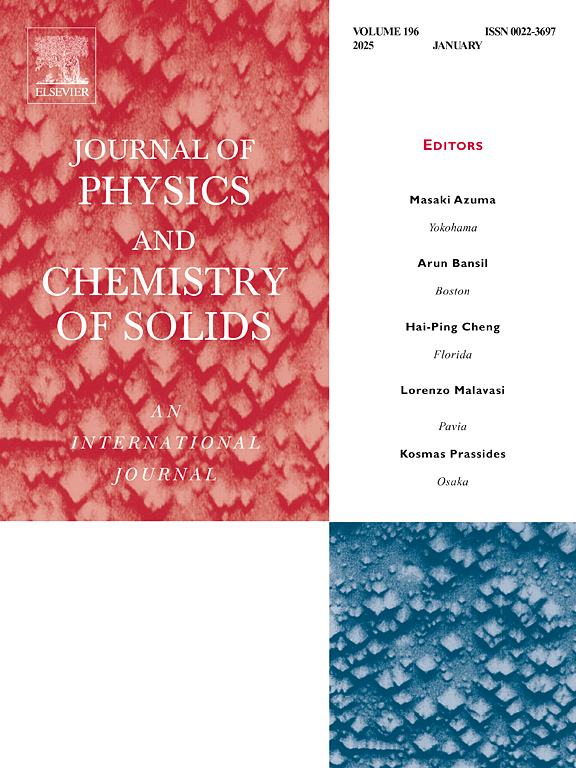Tuning the electrochemical performance of a biphenylene coated metal as the anode for K+-ion batteries
IF 4.3
3区 材料科学
Q2 CHEMISTRY, MULTIDISCIPLINARY
引用次数: 0
Abstract
The researchers employed density functional theory (DFT) computations to assess suitability of BP-biphenylene (b-BP) monolayers for application in potassium-ion battery systems. In their evaluations, the researchers considered various factors, like adsorption energy (Ead) of the b-BP monolayer with adsorbed potassium adatoms, in addition to diffusion energy barrier (Ebar) and storage capacity and of potassium ions on this surface. The results indicated that the b-BP monolayer has significantly higher potassium-ion storage capacities, reaching 1026 mAh/g, compared to typical graphite anodes and other carbon materials. The Ebar for potassium ions on the b-BP monolayer was determined to be 0.22 eV. Furthermore, anticipated open-circuit voltage (OCV) values for this material were found to lie within acceptable range of 0.25–1.2 V, making it suitable for use as an anode. These research findings underscore the potential of the b-BP monolayer as an appropriate anode material for potassium-ion battery (KIBs) applications.
调整作为 K+ 离子电池阳极的联苯涂层金属的电化学性能
研究人员利用密度泛函理论(DFT)计算评估了 BP-联苯(b-BP)单层在钾离子电池系统中的适用性。在评估过程中,研究人员考虑了各种因素,如吸附了钾原子的 b-BP 单层的吸附能(Ead)、扩散能垒(Ebar)以及钾离子在该表面上的存储容量。结果表明,与典型的石墨阳极和其他碳材料相比,b-BP 单层的钾离子存储容量明显更高,达到 1026 mAh/g。据测定,b-BP 单层上钾离子的电子伏特为 0.22 eV。此外,还发现这种材料的预期开路电压 (OCV) 值在 0.25-1.2 V 的可接受范围内,因此适合用作阳极。这些研究成果强调了 b-BP 单层材料作为钾离子电池(KIBs)应用的适当阳极材料的潜力。
本文章由计算机程序翻译,如有差异,请以英文原文为准。
求助全文
约1分钟内获得全文
求助全文
来源期刊
CiteScore
7.80
自引率
2.50%
发文量
605
审稿时长
40 days
期刊介绍:
The Journal of Physics and Chemistry of Solids is a well-established international medium for publication of archival research in condensed matter and materials sciences. Areas of interest broadly include experimental and theoretical research on electronic, magnetic, spectroscopic and structural properties as well as the statistical mechanics and thermodynamics of materials. The focus is on gaining physical and chemical insight into the properties and potential applications of condensed matter systems.
Within the broad scope of the journal, beyond regular contributions, the editors have identified submissions in the following areas of physics and chemistry of solids to be of special current interest to the journal:
Low-dimensional systems
Exotic states of quantum electron matter including topological phases
Energy conversion and storage
Interfaces, nanoparticles and catalysts.

 求助内容:
求助内容: 应助结果提醒方式:
应助结果提醒方式:


